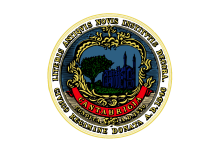Local Internet Choice BUDs in Waldo County, Maine
Spurred to action by inadequate high-speed Internet service as the pandemic besieged their communities, local officials and citizen volunteers in five rural Maine towns formed the Southwestern Waldo County Broadband Coalition (SWCBC) in an effort to bring ubiquitous and affordable broadband to its portion of Waldo County.
Two years later, the SWCBC is close to securing a major victory for local Internet choice in the face of a well-funded opposition campaign sweeping the Pine Tree State as the Big Telecom lobby and its allies try to undermine the very idea of publicly-owned, locally-controlled broadband networks in Maine and elsewhere.
The five SWCBC towns clustered about 30 miles east of Augusta – home to approximately 5,600 Mainers – are looking to create what is known as a Broadband Utility District (BUD). Four of those towns (Freedom, Liberty, Palermo, and Searsmont) recently voted in favor of establishing a BUD. Montville will be the last of the five towns to vote on whether to BUDdy up with the neighboring municipalities via an Interlocal Agreement (ILA). That vote is slated for August 23.
Similar to Communication Union Districts (CUDs) that the neighboring state of Vermont is relying on to deliver reliable and affordable broadband to its residents and businesses, Maine state law “allows towns to band together to form a community-owned organization, controlled by the municipality members but a legally separate organization - a regional non-profit utility. The BUD is allowed to incur debt that is separate from and not guaranteed by the municipalities.”






